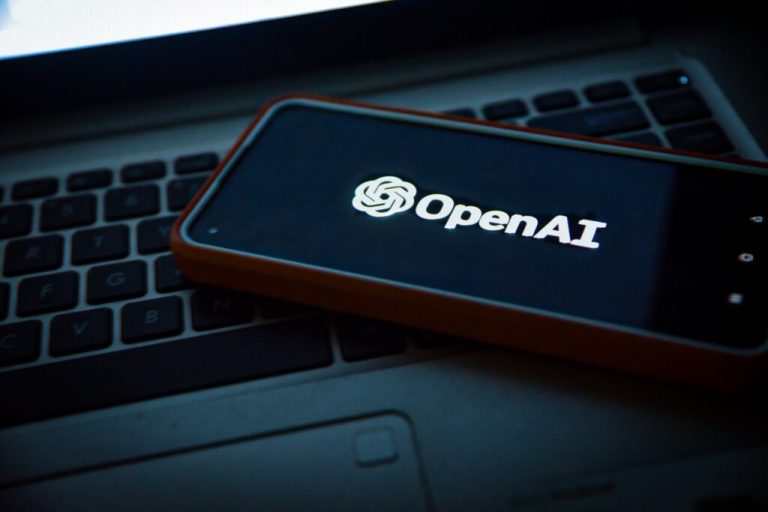Study Reveals Political Bias in ChatGPT’s Responses
Study Raises Concerns Over ChatGPT’s Political Bias
A recent study conducted by computer and information science researchers from the UK and Brazil has ignited discussions about the impartiality of ChatGPT. The researchers reported significant political bias within the AI’s responses, indicating a tendency towards the left side of the political spectrum.
Published in the journal Public Choice, this research, led by Fabio Motoki, Valdemar Pinho, and Victor Rodrigues, asserts that the existing biases in AI-generated content could further entrench the prejudices present in traditional media. The findings underscore the implications of such bias for diverse stakeholders, including policymakers, media organizations, political entities, and educational institutions.
Utilizing an empirical methodology, the researchers employed a range of questionnaires aimed at determining ChatGPT’s political inclination. The chatbot was prompted with political compass questions to assess its stance on various issues. The study also involved scenarios where ChatGPT portrayed both an average Democrat and a Republican, revealing a consistent bias favoring Democratic-oriented responses.
Notably, the research indicated that ChatGPT’s inclination is observable not only in the US but also in the Brazilian and British political landscapes. The findings suggest that this bias is not merely a technical artifact but possibly a deliberate characteristic in the algorithm’s outputs.
Identifying the precise origin of this political bias remains complex. The researchers explored both the training data and the algorithm itself, positing that both elements likely play a role in shaping the observed bias. They emphasized the necessity for further exploration to dissect these components for a more comprehensive understanding of the bias’s underlying causes.
As of now, OpenAI, the organization behind ChatGPT, has yet to respond to the findings of this study. This research adds to a growing list of concerns linked to AI technologies, including those related to privacy, education, and identity verification across various sectors.
With the reach of AI tools like ChatGPT expanding, it is crucial for experts and stakeholders to consider the ramifications of biased AI-generated content. This study serves as a compelling reminder of the importance of vigilant scrutiny and thorough assessment to ensure that AI technologies are designed and implemented in a fair and impartial manner, free from excessive political influence.
(Photo by Priscilla Du Preez on Unsplash)
Teachers in England Given the Green Light to Use AI
Educators across England have now received approval to integrate artificial intelligence into their teaching methodologies. This significant step is expected to enhance the learning experience, making it more personalized and efficient.
AI’s Influence in the Cryptocurrency Industry
The role of AI in the cryptocurrency market is becoming increasingly prominent. Innovations driven by AI are set to transform how transactions are managed and how decisions are made in this evolving sector.
Sam Altman, OpenAI: The Superintelligence Era Has Begun
Sam Altman recently announced the arrival of the superintelligence age, emphasizing the advancements made in AI technology and its far-reaching implications across various industries.
Magistral: Mistral AI Challenges Big Tech with Reasoning Model
Mistral AI is positioning itself against major tech companies by introducing a novel reasoning model. This initiative aims to reshape competitive dynamics and drive innovation in the market.
Artificial Intelligence, Machine Learning, Space
The role of machine learning in enhancing cloud-native container security (41086 views)
Artificial Intelligence, Finance, Logistics
Innovative machine learning applications transforming business operations (14295 views)
Applications, Artificial Intelligence, Face Recognition, Industries, Security
AI and bots reportedly used to manipulate music streaming numbers (12147 views)
Artificial Intelligence, Space
The advantages of collaborating with outsourced developers (10389 views)
Applications, Artificial Intelligence, Chatbots, Companies, Development, Virtual Assistants
Magistral: Mistral AI is taking on the tech giants with its reasoning model.
The AI Blockchain: What Is It Really?
The term “AI blockchain” is gaining traction, yet its true essence remains ambiguous to many. Essentially, this concept marries the power of artificial intelligence with blockchain technology to enhance data security and integrity. By utilizing blockchain’s decentralized nature, AI systems can operate with improved transparency and accountability, which can benefit various sectors including finance, healthcare, and supply chain management.
Key Features of AI Blockchain
One of the standout characteristics of AI blockchain is its ability to provide trustworthiness in data transactions. Traditional AI systems rely heavily on centralized databases, which can be vulnerable to hacks and data tampering. In contrast, blockchain’s distributed ledgers make it difficult for any single entity to manipulate the data.
Additionally, integrating AI within blockchain can lead to smarter contract execution. These self-executing contracts, with the terms directly written into code, can be enhanced with AI to analyze conditions and make real-time decisions. This fusion opens avenues for automated processes and reduces the need for intermediaries.
Challenges and Future Directions
Despite its promising capabilities, the AI blockchain faces significant hurdles. Scalability remains a primary concern, as processing large volumes of data in real-time can strain existing blockchain frameworks. Moreover, regulatory challenges and the need for standardization are key factors that could influence its widespread adoption.
Looking ahead, the convergence of AI and blockchain has the potential to redefine how data-driven solutions are approached. As both technologies evolve, their collaboration could lead to unprecedented innovations, enhancing efficiency and security across various industries.
In Conclusion
The AI blockchain presents an intriguing frontier at the intersection of artificial intelligence and blockchain technology. While challenges exist, the potential benefits in terms of security, efficiency, and transparency are compelling. As developers and companies explore this synergy, we can expect to see more transformative applications emerge in the coming years.






